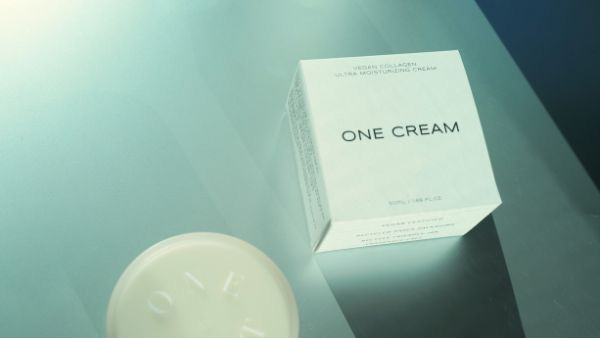For those of you who are thinking about going vegetarian, take a step back and check out on the latest trendy meal plan – ‘Flexitarian’. Regardless of your motive behind, whether you’re trying to lose weight, be healthier in general, or care a lot about the environment and animals, Flexitarian is an alternative that fulfills all your wishes.It is an approach that allows you to enjoy meat or seafood occasionally while keeping most of the other meals veggie-based.
The Flexitarian meal plan in Eatology offers one meal with meat or fish daily and the rest are all vegetarian dishes, including snacks or breakfast. It can serve as a transition to be a vegetarian so one can slowly get used to a meatless diet. It is also great for those who want to reduce the intake of meat or fish but are struggling if they should give them up totally. Eating meat doesn’t have to be an all-or-nothing choice unless for religious purposes. While giving some wiggle room to have juicy meat and tasty shrimps, it is a more ideal way to start a plant-based diet.
Health Benefits
Let’s talk about the health benefits. We all agree that getting more veggies is good for us but guess no one likes to eat veggie salad all the time, and you don’t really have to. All we need to do is to increase the portions of healthy carbohydrates intake. Carbohydrate is crucial to our body. Not only does it supply energy to us on a daily basis, but it also provides some important nutrients like sugar, fiber, vitamin A,B,C,E,K.
In Eatology, we have different kinds of healthy carbohydrates-rich meals like burritos, poke bowl, chili con carne, quiches, zucchini noodles and soba noodles. You will be surprised by our variations in dishes and we won’t let you down even if you are the meat-lovers kind. (If you wants to know more about the menus, feel free to check: https://www.eatologyasia.com/menu/)
You are taking protein more than necessary
Worried about not having enough protein? When going flexitarian, the protein intake is just right. Sometimes we simply over-estimate our need for protein.
The RDA ( Recommended Dietary Intake ) to prevent deficiency for an adult is 1-1.2 grams per kilogram of body weight (1). The protein inside our body serves as building blocks of muscle, fuel for energy and it helps in losing weight too. Anabolism and catabolism are part of the processes involved in metabolism. They work together to free and capture energy in your body. Simultaneous and continuous anabolic and catabolic reactions keep the protein to be broken down and built up again and again. Their rates should be the same unless we increase either end. Let’s say if we want to build muscle, the rate of anabolic side (building) is greater than that in catabolic side (breaking), in this case we take more protein to supply the substrates/building material.
What happens when we take in more protein than we need? Excess protein is turned to fat and stored in our body through deamination by the liver. That would be too much work for our liver if it happens constantly. This may also lead to elevated blood lipids and heart disease especially when the high-protein foods are usually high in total and saturated fat. The worst case would be posing an additional risk to people predisposed to kidney disease. Research also indicates the correlation between higher red meat consumption and higher risk of cardiovascular disease and diabetes.
Gut microbiome health
Gut health is gradually being promoted in the public as there is increasing research showing that gut health is indispensable for our general well-being. Flexiarian allows you to take different kinds of plant-based foods and stretch the utmost of the power of our gut. The better our gut health, the easier for our absorption of the insoluble dietary fiber and also the inhibition of the growth of pathogenic organisms.
Microbiotas exist since we are a baby inside our mother, and their home base for them is our digestive tract. The gut stores both “good” and “bad” microbiotas. Our mission is to recruit more beneficial microbiota, keep them healthy and abundant in our gut, then fight off most of the bad ones. The key is that we have to feed the right food – feed ourselves with probiotics and feed them with prebiotics. Common prebiotics are fibers and natural sugars and the examples are nuts, fruits, whole grains and fermented vegetables like kimchi, kombucha, tempeh, pickled cucumbers…etc,
Environment sustainability
Ever wonder eating meat is related to climate change? Although the burning of fossil fuels contributes the most to global warming, activities relating to land management including agriculture and forestry produce almost one-fourth of heat-trapping gasses resulting from human activities (2). This is not surprising, considering world meat production was estimated at least three times more than fifty years ago. Cattle raised on pastures created by cleaning woodland are particularly emission-intensive as it often comes with large-scale deforestation.
The global food system is damaging our planet. You are not to be blamed just because you eat meat but it would also be nice to keep a few meals away from it sometimes. Flexitarianism is typical of sustainable diet, reconciling health with respect for the environment. If everyone ate less meat, the need for intensive animal farming would be reduced.
Summary
At its core, the flexitarian diet allows for flexibility, which may be appealing to some who are looking for a path to improved health that has fewer rigid rules. The main purpose of this diet is to slowly increase one’s plant intake over time without omitting animal foods. The flexitarian diet is a simple, healthy, straight forward way of eating. Don’t be afraid to get adventurous with your diet, start flexitarian with Eatology now!
Reference:
- https://www.mayoclinichealthsystem.org/hometown-health/speaking-of-health/are-you-getting-too-much-protein#:~:text=Extra%20protein%20intake%20also%20can,people%20predisposed%20to%20kidney%20disease.
- https://www.nature.com/articles/d41586-019-02409-7


